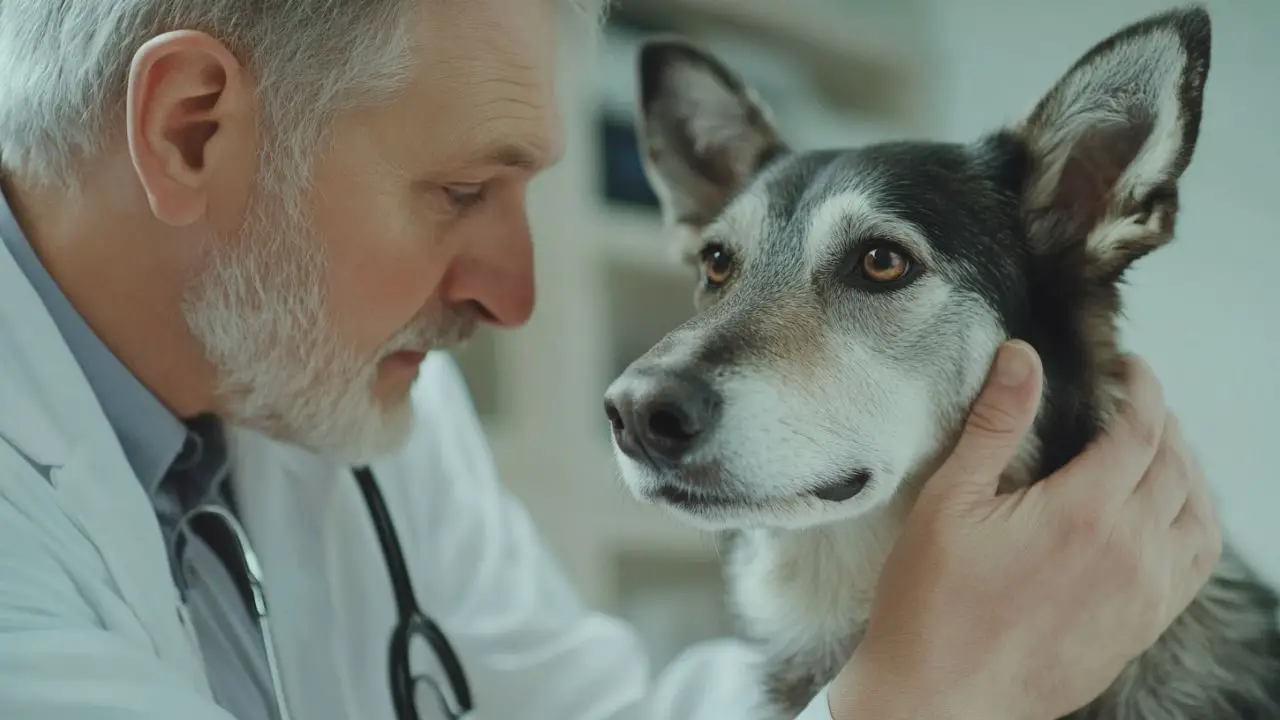Our canine companions rely on their ears not just for hearing, but also for balance and expression.
Unfortunately, dog ears can be prone to various issues that can cause discomfort and even lead to more serious health problems.
Let’s explore seven common ear issues in dogs and learn how to prevent them, ensuring our furry friends keep their ears perky and healthy.
1. Ear Infections
The Problem
Ear infections are one of the most common issues dogs face, especially those with floppy ears.
They can be caused by bacteria, yeast, or a combination of both.
Prevention Tips
Regular cleaning with a veterinarian-approved ear cleaner can help prevent infections.
Dry your dog’s ears thoroughly after swimming or bathing to reduce moisture, which can lead to infections.
2. Ear Mites
The Problem
These tiny parasites can infest your dog’s ear canal, causing intense itching and discomfort.
They’re highly contagious and can spread quickly between pets.
Prevention Tips
Regular check-ups with your vet can catch ear mites early.
Keep your dog’s living area clean and vacuum frequently to reduce the risk of infestation.
3. Allergies
The Problem
Allergies can cause inflammation in the ears, leading to scratching, redness, and potential infections.
Food allergies, environmental allergies, and contact allergies can all affect the ears.
Prevention Tips
Work with your vet to identify and manage your dog’s allergies.
This might involve dietary changes, medications, or environmental modifications.
4. Foreign Objects
The Problem
Dogs can get various objects stuck in their ears, from grass seeds to small toys.
These can cause discomfort and lead to infections if not removed promptly.
Prevention Tips
Check your dog’s ears regularly, especially after outdoor activities.
Consider using a snood or hood to protect the ears during walks in areas with lots of grass or foxtails.
5. Aural Hematomas
The Problem
An aural hematoma is a blood-filled swelling on the ear flap, often caused by excessive head shaking or ear scratching.
It can be painful and may require surgical intervention if severe.
Prevention Tips
Address underlying ear issues promptly to prevent the head shaking and scratching that can lead to hematomas.
Consider using an Elizabethan collar if your dog is prone to excessive scratching.
6. Ear Wax Build-up
The Problem
While some ear wax is normal and beneficial, excessive build-up can lead to discomfort, hearing issues, and create an environment conducive to infections.
Prevention Tips
Regular ear cleaning can help manage wax levels.
However, be careful not to clean too frequently, as this can irritate the ear canal.
7. Deafness
The Problem
While not always preventable, some forms of deafness in dogs can be caused by chronic ear infections, exposure to loud noises, or certain medications.
Prevention Tips
Protect your dog’s hearing by addressing ear infections promptly.
Avoid exposing your dog to excessively loud noises, and discuss any concerns about medication side effects with your vet.
General Prevention Tips for Healthy Dog Ears
Regular Check-ups
Schedule regular veterinary check-ups to catch any ear issues early.
Your vet can show you how to properly clean your dog’s ears at home.
Proper Cleaning Technique
When cleaning your dog’s ears, be gentle and never insert anything into the ear canal.
Use a soft, damp cloth to clean the outer ear, and a vet-approved cleaner for deeper cleaning.
Diet and Nutrition
A balanced diet can help support overall health, including ear health.
Some dogs may benefit from supplements that support skin and coat health.
Grooming
For dogs with hairy ear canals, regular grooming can help prevent wax build-up and reduce the risk of infections.
Watch for Warning Signs
Be alert for signs of ear problems, such as head shaking, scratching at the ears, redness, swelling, or unusual odors.
Conclusion: Happy Dogs Have Healthy Ears!
Maintaining your dog’s ear health is an important part of their overall well-being.
By being proactive and following these prevention tips, you can help ensure your furry friend’s ears stay healthy and problem-free.
Remember, every dog is unique, and some may be more prone to ear issues than others.
Always consult with your veterinarian for personalized advice on your dog’s ear care routine.
Regular attention to your dog’s ears not only prevents discomfort and potential health issues but also provides an opportunity for bonding.
Your gentle care shows your pet how much you love them, from the tips of their nose to the tops of their adorably floppy (or perky!) ears.
Share this post if you’re committed to keeping your pup’s ears in tip-top shape!
Let’s spread awareness about the importance of ear health in our canine companions.
After all, a dog with healthy ears is a happy dog, and a happy dog means a joyful home for everyone!
SHARE now with your friends!
[Sassy_Social_Share]


I feel like I’ve gained a lot of useful knowledge from this post.
I love the approach you took with this subject—very insightful.